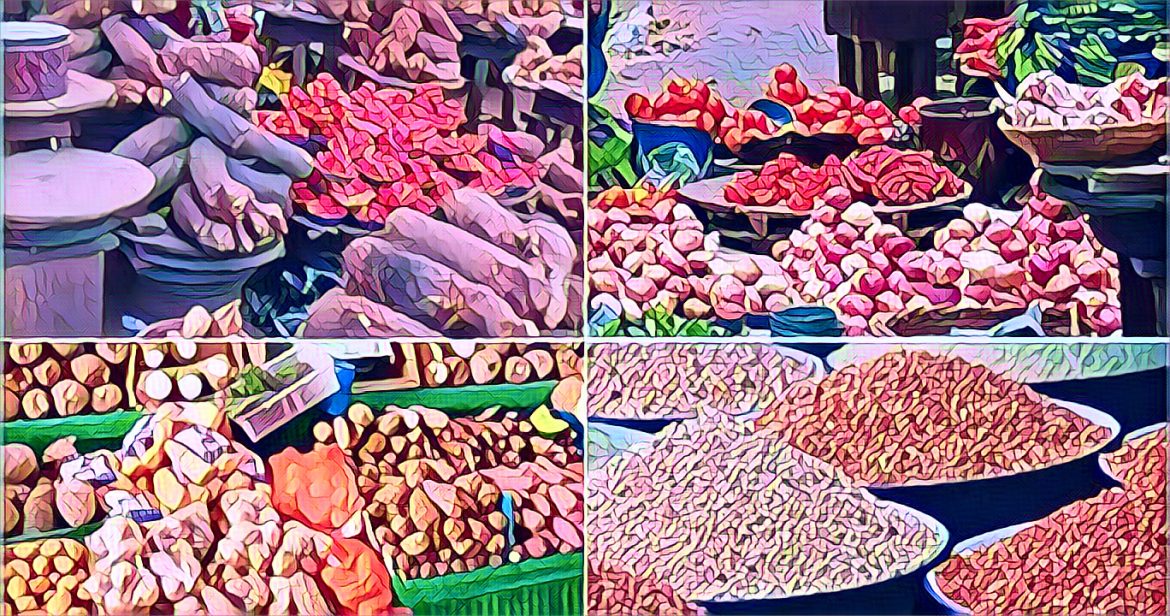In Nigeria, households are experiencing increasing financial pressure as inflation has reached a 28-year high, worsening the existing cost-of-living crisis. The headline inflation rate climbed to 33.69% in March, with food inflation exceeding 40%, according to the latest figures from the Nigeria Bureau of Statistics (NBS). This marks the highest inflation rate since March 1996, highlighting the significant economic challenges faced by Nigerians dealing with rising prices for food and essential goods.
The recent inflation data shows a notable month-on-month slowdown, the first decrease this year, with the rate dropping to 2.29%. Despite this relief, the broader economic impact remains severe, leading experts to anticipate that the Central Bank of Nigeria (CBN) will raise interest rates in the coming week to further control inflation.
In response to persistent inflation, the CBN has already raised monetary policy rates significantly earlier this year. These adjustments are part of a broader strategy to reduce liquidity in an effort to curb the accelerating inflation trend that has persisted for over 15 months. Despite these efforts, inflation continued to rise, reaching an all-time high of 33.69% in April, an increase from the previous month.
A closer examination of April’s inflation figures reveals that the main drivers of this persistent inflation are structural, demanding solutions beyond monetary policy adjustments. Key factors include high transportation costs, which surged by 79.17% in March, and security issues that restrict agricultural activities, particularly in Northern Nigeria, leading to significant food shortages.
Moreover, escalating energy costs due to rising fuel and diesel prices, coupled with inconsistent power supply, have compelled manufacturers to rely heavily on diesel for production. These factors, together with the burden of multiple taxation as the government seeks to increase revenue, are pushing an increasing number of Nigerians into poverty.
The humanitarian impact of the inflation crisis is profound. The Nigerian Red Cross Society has recently highlighted that over 30 million Nigerians face starvation. The United Nations has also called for urgent actions to address the severe food and nutrition crises affecting approximately 5.9 million Nigerian children, the highest figure globally.
In response, President Bola Tinubu declared a national emergency on food security last July. However, ten months later, the situation has worsened, with basic food items becoming increasingly unaffordable for many. For example, the price of staples like rice, beans, garri, and yam has skyrocketed over the past year.
The persistence of high inflation has sparked a debate among economists and policymakers. While the CBN’s current leadership maintains that high interest rates are necessary to tame inflation, critics argue that the monetary policy measures are plunging the nation deeper into the inflationary spiral. The CBN governor, Olayemi Cardoso, acknowledges the challenge, attributing the stubborn inflation primarily to high food prices, which he notes are beyond direct control by monetary policies.
Fiscal governance experts, such as Eze Onyekpere, argue that stabilizing the foreign exchange without increasing inflows is futile. They criticize the government’s focus solely on monetary policy while neglecting other crucial sectors like fiscal, trade, and industrial policies. Onyekpere also points out the inefficacy of current strategies in controlling food inflation, particularly as security issues drive farmers from their lands.
Looking forward, economists like Kelvin Emmanuel suggest that the Monetary Policy Committee (MPC) might raise the Monetary Policy Rate (MPR) by 150 basis points in their next meeting to 26.25%, aiming to reduce the yield curve differential. However, he warns that relying solely on the Central Bank to combat inflation is misguided.
As the 295th CBN Monetary Policy Committee meeting approaches, all eyes will be on the potential adjustments to monetary policy. The committee is expected to review its previous decisions, which focused on tightening to curb inflation, amidst ongoing debates about the efficacy and broader economic impact of high interest rates.
As Nigeria navigates these challenging economic waters, it becomes increasingly clear that tackling inflation requires more than just monetary interventions. It demands comprehensive economic reforms and a concerted effort to address both the symptoms and the underlying causes of inflation. The coming months will be crucial in determining whether the combined efforts of fiscal and monetary policies can stabilize the economy and alleviate the hardships experienced by millions of Nigerians.
Source: The Guardian


